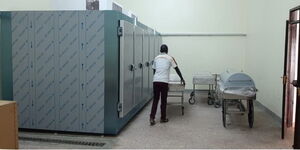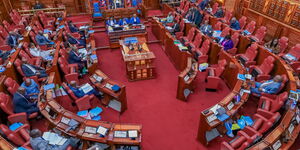The Principal Secretary for Crop Development Kello Harsama has called on farmers to pick up the subsidised fertilizer offered by the government through his ministry.
Harsama, on Thursday, February 9, observed that there was a slow uptake of the agricultural product provided by the government countrywide.
Kello noted that out of the 4.3 million registered farmers, only 1,431 had accessed the subsidised input from the government.
“Because of the little information, some farmers may not be aware that fertilisers have arrived in their store. That is why we have called this presser to tell Kenyans that the fertilisers are now available,” clarified Harsama.
The PS had earlier highlighted that the fertiliser would be available for farmers at half the price for a 50kg bag but has since seen a low number of farmers show up for the product.
Harsama, therefore, noted that the state intended to explore various media avenues to inform Kenyans that the fertiliser was available at several godowns.
According to President William Ruto and his deputy Rigathi Gachagua, the government planned to subsidise upto 500,000 metric tonnes of various types of fertilisers for the year's long rain between March and May.
The biggest beneficiaries of the subsidy are maize farmers who accounted for 1.08 million out of the 4.3 registered farmers.
So far, the farmers growing the staple food had received 287,000 bags of subsidised fertiliser, whose quantity stood at 14,300 metric tonnes.
The PS commented that the program was meant to address maize production which had a huge impact on the cost of food for Kenyans.
The subsidised fertiliser was set to be availed to farmers at the nearest National Cereal and Produce Board (NCPB) depots.
On Monday, February 6, farmers complained of delays and high transport costs, which they believed rendered the subsidy program counterproductive.












